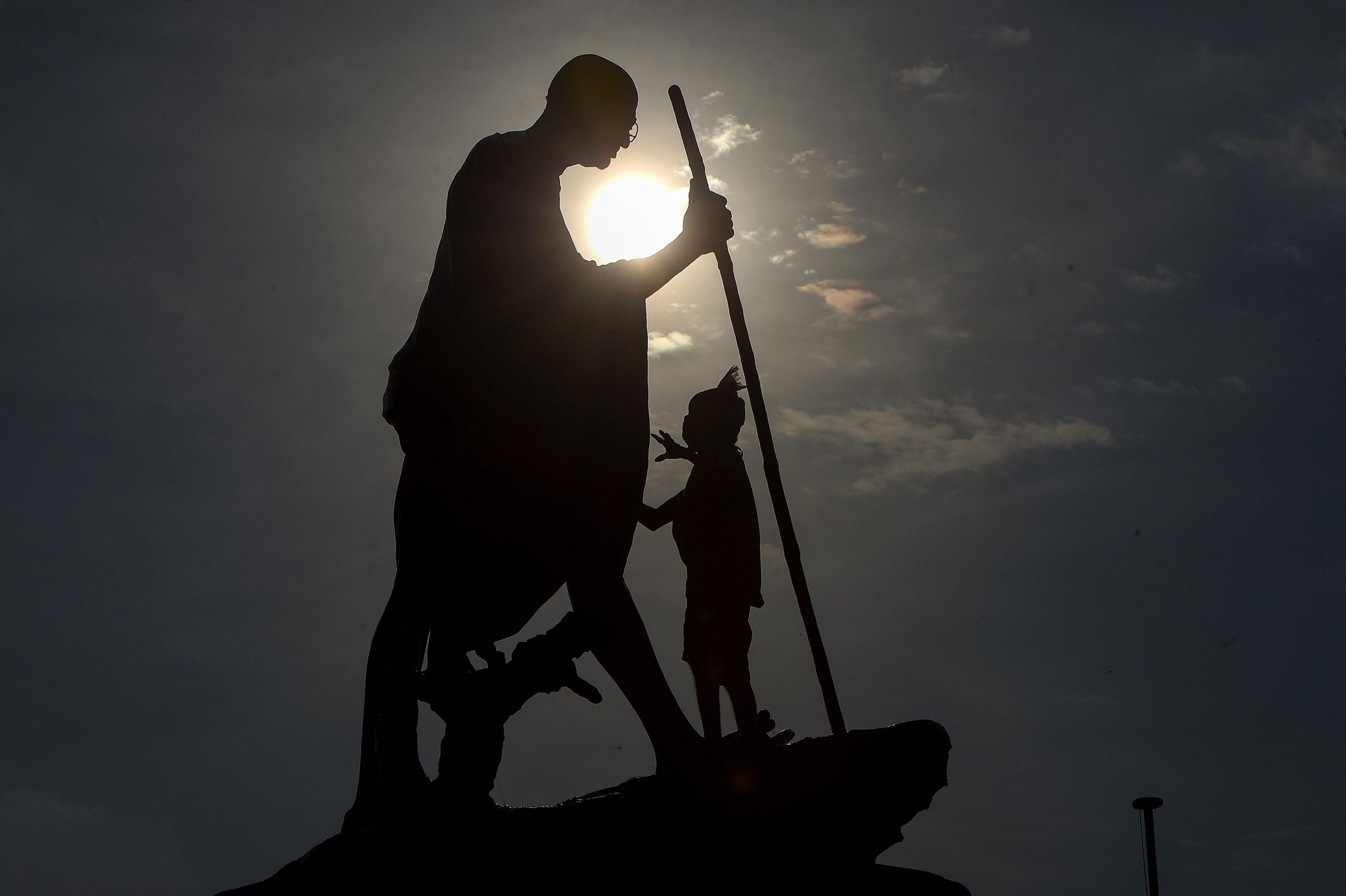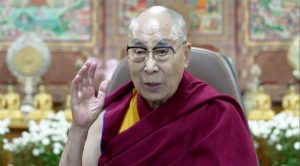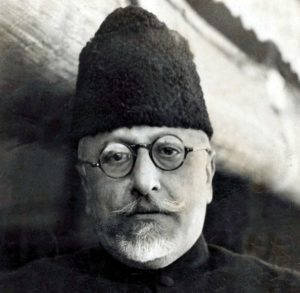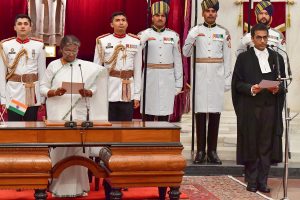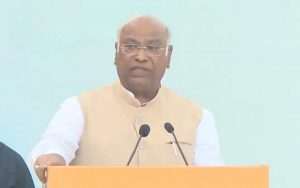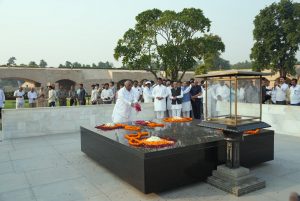“Mahatma Gandhi had the ability to recognise the presence of symptoms that would bring on an ailment in society, and always worked to prevent such symptoms from becoming a problem,” says his great-grandson Tushar Arun Gandhi, who is a journalist and an author too.
Addressing the current societal context in an era that is deeply divisive, Tushar Arun Gandhi says that, “Bapu would have recognised the signs of the intolerance, the prevalence of hate, the parochialism, the injustice, inequality, and disparity in our current society that we have normalised… he would have recognised these as symptoms of a much greater malaise that affects our nation, and would nip all the current injustices in the bud.”
Also Read: ‘There’s so much to learn from his life’: PM Modi’s message on Gandhi Jayanti
“He would not have allowed society to reach the current state of moral deprivation and depredation,” he says.
On the eve of the 151st birth anniversary of Mohandas Karamchand Gandhi, who is recognised as the ‘Father of the Nation’, it is imperative that we evaluate and ponder upon the myriad ways ‘Bapu’ shaped the discourse of not just India’s freedom struggle but also the country’s cultural and social ethos in the 20th century.
As citizens of a democratic, secular, socialist, republic, Indians pay homage to the Mahatma on his birthday anniversary October 2 every year, but the questions linger on whether the nation has accepted and internalised the teaching of India’s greatest freedom fighter.
Also Read: Gandhi Jayanti 2020: 10 timeless quotes from ‘Bapu’
Tushar Gandhi replied with an “emphatic no” to the question of successive governments since independence doing justice to the legacy of the Mahatma. “None of the governments can ever claim to have been inspired by a model of governance that adhered to Bapu’s thought”, and added that the present National Democratic Front regime’s, “attempt to sabotage India’s democratic and secular, socialist ethos made the Congress government appear close to the Gandhian ideals.”
Tushar Arun then quickly added, “that being so far removed from the Gandhian ideals, the Congress appears to be closer to the ideas of Bapu, but in terms of ideology, no government in independent India can claim to ever have followed Bapu’s path. They have all gone astray and discarded his thoughts.”
Would Bapu have endorsed protests over Citizenship Amendment Act(CAA), National Register for Citizens (NRC)?
“The Anti-CAA, NRC movement that happened in India is something that Bapu would have wholeheartedly endorsed and would also have participated in,” says his grandson.
And Shaheen Bagh?
“Yes, Bapu would have endorsed and approved of the Shaheen Bagh protest and also the other Shaheen Bagh alike sit-in protests that took place in the country,” Tushar Gandhi says.
Then what about the statement made by President Ramnath Kovind that the Citizenship Amendment Act was fulfilling the wishes of Bapu (The President’s statement was made to a joint sitting of the parliament on January 31, 2020)?
Tushar Arun says, “You must understand the helplessness of the President of India, even if the voice is his, the words, he has no control over. President Kovind is merely reading out what the government had asked him to.”
“The government was desperately seeking legitimisation of their move(CAA) and who better than Mahatma Gandhi to do so,” he says.
Pointing out one such event that dates back to Mahatma Gandhi’s South Africa days, Tushar Arun says, “a similar discriminatory law called the ‘Asiatic Registration Act’, was implemented by the British colonial rulers of South Africa.”
He adds, “by no stretch of imagination ever, can the CAA be a fulfilment of Gandhi’s desire.”
Tushar Arun also recalled instances narrated to him by his father that highlighted the mutual respect Bapu had for his wife Kasturba Gandhi. Tushar recalled an instance when Kasturba had defied Bapu on his birthday and invited fellow working women to dine with her at the Sevagram Ashram, Maharashtra. The women had requested Mahatma to be allowed to spend time with him on the occasion of his birthday, Bapu had obliged to the request.
He had requested the women to carry food along with them, as making arrangements for the group was difficult given the frugal lifestyle followed at the ashram. Kasturba Gandhi, however, defied Bapu and cooked khichdi for the women and served them at short notice, as for her, guests were akin to God.
Hearing about the incident, Gandhiji acknowledged that while the British crown would take note of his decrees, Ba would often dismiss his diktat as she had the right to her own opinion. Gandhiji admitted that an individual had the right to their own opinion, to follow what they believed in.
He added that he could not force Ba to believe anything against her will.
Tushar Arun called the incident one among many such instances of mutual respect that Bapu and Kasturba shared.

